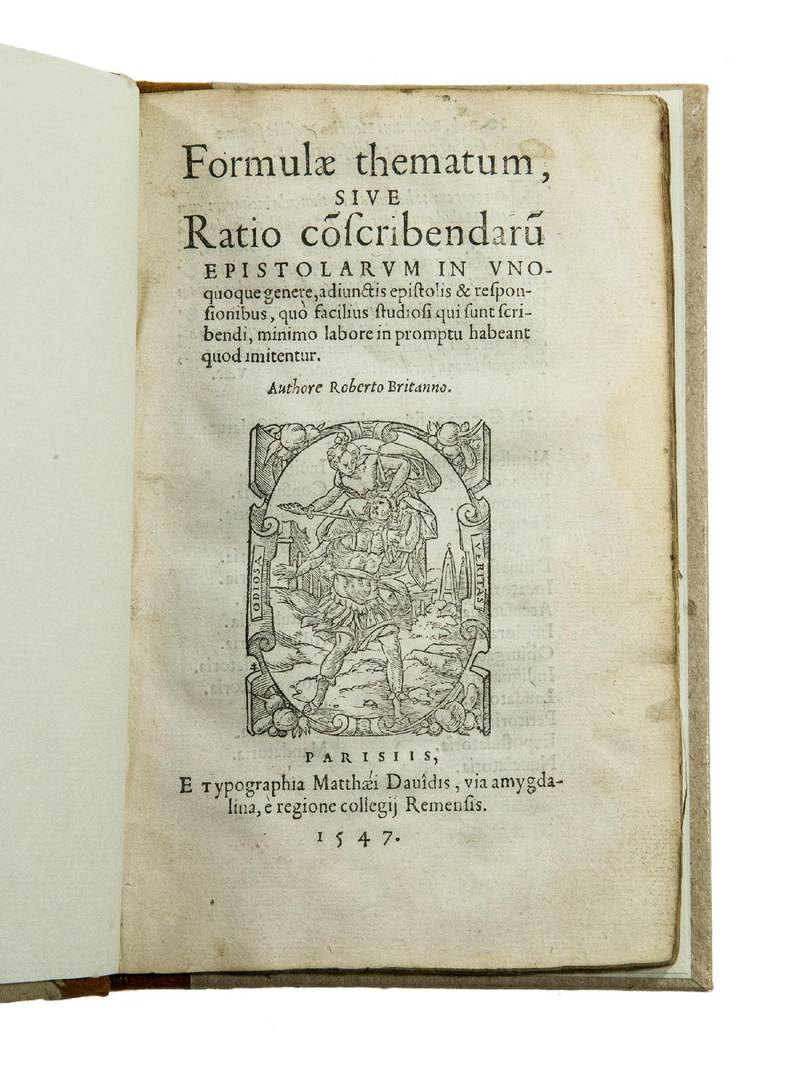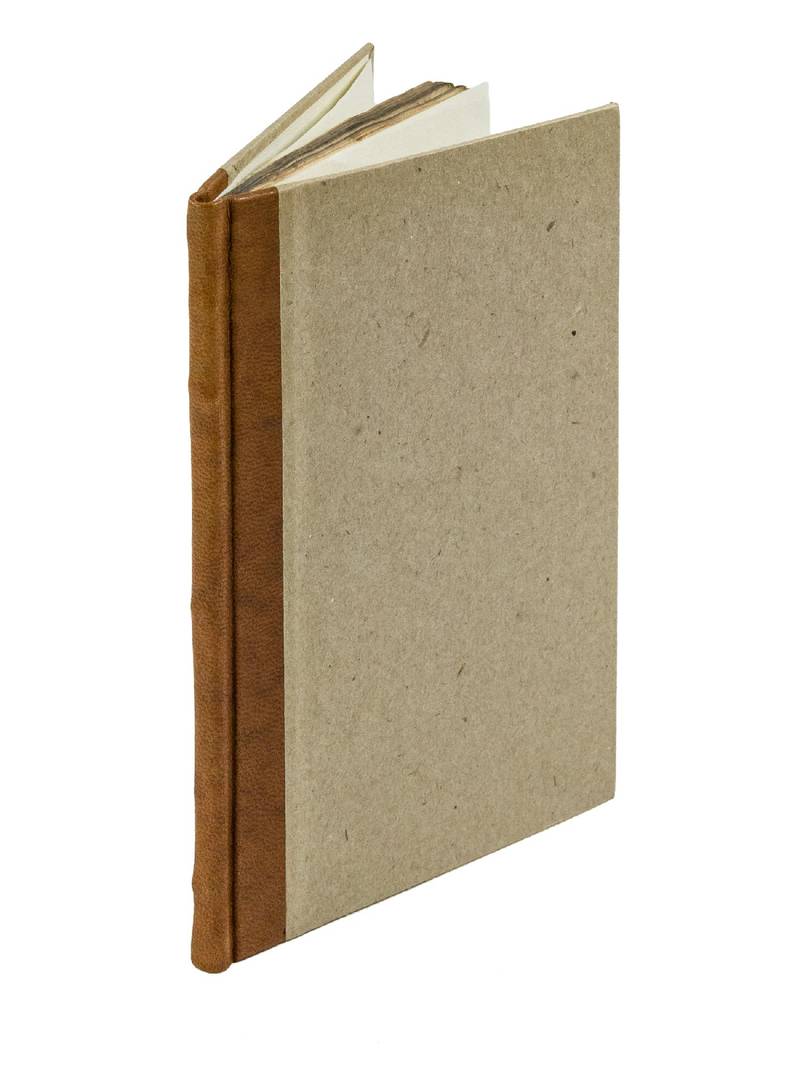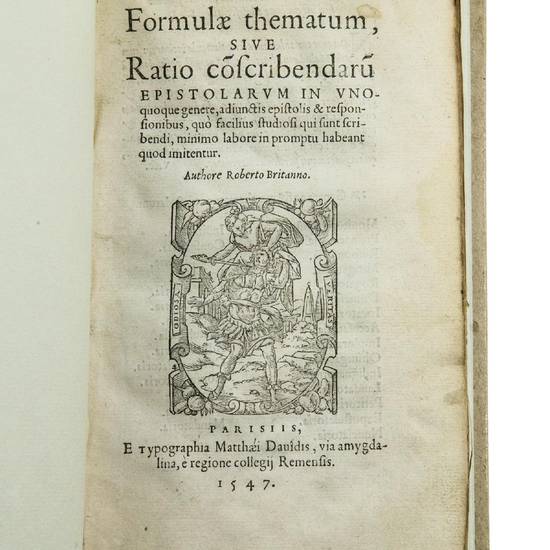Formulae thematum sive Ratio co(n)scribendar(u)m epistolarum in unoque genere, adjunctis epistolis & responsionibus, quò facilius studiosi qui sunt scribendi, minimo labore in promptu habeant quod imitentur
Autore: BRITANNUS, Robertus (Breton Robert, ca. 1510-after 1551)
Tipografo: Mathieu David
Dati tipografici: Paris, 1547
8vo. 64 pp. A-D8. With the printer's device on the title-page. Modern half-calf.
Index Aureliensis, 125.162; Martín Baños, p. 488.
FIRST AND ONLY EDITION. The work is dedicated to the young Henri de Mesmes (1532-1596), who probably was Breton's pupil at Toulouse at that time. Henri de Mesmes, later chancellor of the kingdom of Navarre and president of the Parliament of Paris, owner of a large library, became the protector of numerous humanists and poets.
Breton gives examples for twenty-nine types of letters (monitoria, provocatoria, iocatoria, laudatoria, etc.) and an answer to each. “En su reivindicacíon del decoro y la variedad estilíca epistolar, Breton sencillamente resume y/o plagia los primeros capítulos del Opus de Erasmus. El resto del opuscúlo son themata, esto es, propuestas de ejercicios epistolares (argumentos, con brevíssimas indicaciones teóricas, los ejemplos finalmente resueltos y las respuestas correspondientes” (P. Martín Baños, El arte epistolar en el Renacimiento europeo 1400-1600, Bilbao, 2005, p. 409, n. 104).
Relatively little is known about Robert Breton. He was a native of Arras and a professional humanist. He studied under Jacques Toussain and David Lowis. He was on friendly terms with Estienne Dolet, Jean Dorat, Jean Visager, Nicholas Royer, and Charles de Sainte-Marte. In the early 1530s we find him teaching letters at the Collège de Guyenne in Bordeaux. In 1535 ill health compelled him to take a rest cure in the Pyrenees. He returned briefly to Bordeaux and then went to Toulouse to study law. In 1544 he seems to have escaped a dangerous prosecution, whether for religious or political reasons is not clear. He probably taught letters also at Toulouse for a while. The date of his death is not known, but his last known work, a translation from Plutarch Moralium opusculorum Tomus Tertius, was published in 1551.
His earliest publication is a short treatise on thrift, De parsimonia libellus (Paris, 1532). In 1536 he entered the Ciceronianism controversy between Erasmus and Dolet with Defensio Ciceronis contra Mathiam Hilarium Germanum, a tract in which he defends Dolet's position. The volume contained also three orations, as well as a collection of his letters and poetry. His dialogue Agriculturae encomium (Paris, 1539) recommends rural life against city life. A year later he published a more comprehensive volume of his correspondence and in 1542 appeared his treatise on eloquence De ratione consequendae eloquentiae. In 1543 followed a dialogue on the moral education of the young, De instituenda juventute ad honestatem. In the same year Breton published, what is still considered his most important work, De optimo statu reipublicae. The Formulae thematum was his last original work, all his subsequent publications were simply reprints of his earlier writings (cf. E. Gaullieur, Histoire du College de Guyenne d'après un grand nombre de documents inédits, Paris, 1874, pp. 84-86; see also H. Busson, Le rationalisme dans la literature française de la Renaissance, 1533-1601, Paris, 1971, pp. 108-110).
[9021]





